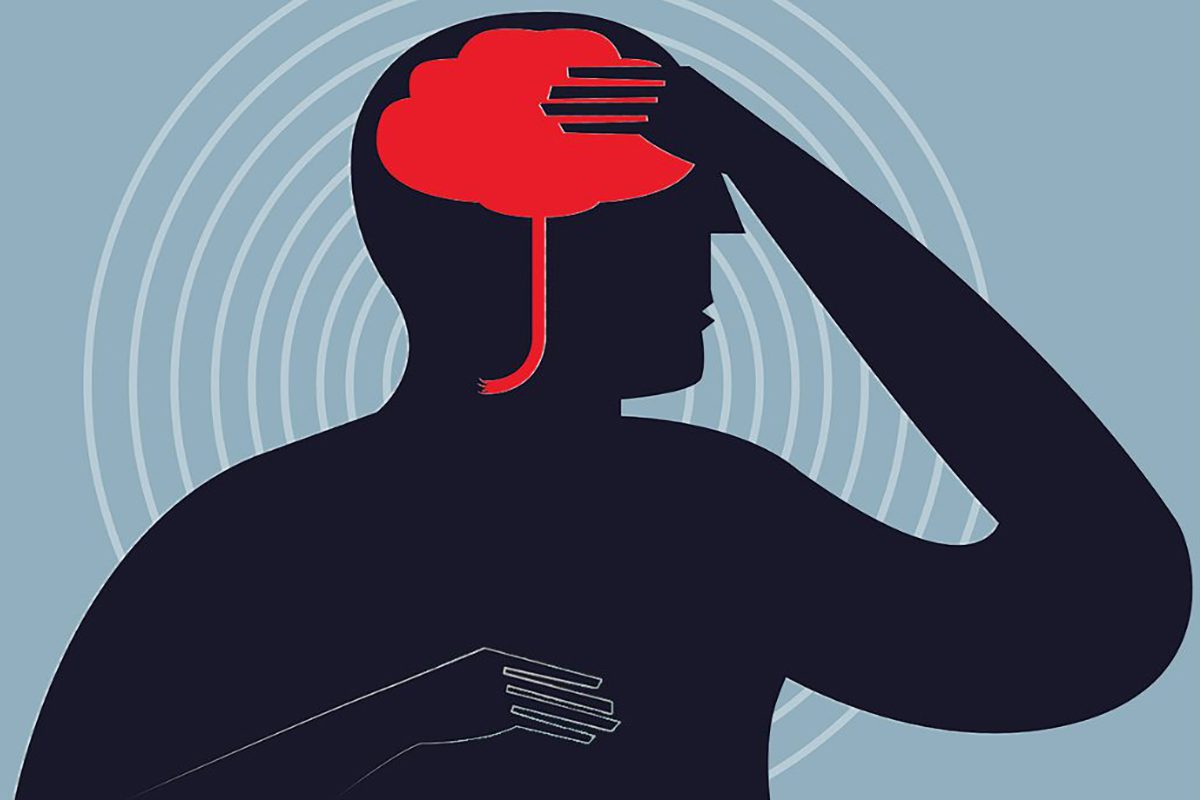Postictal psychosis is rare, can include affective symptoms, and typically presents in patients with recurrent seizures.1,2 It is characterized by the following3:
- It manifests within a week of return to otherwise normal mental function.
- It lasts 1–90 days.
- The mental state can be characterized by (a) delirium, (b) delusions or hallucinations in clear consciousness, or a mixture of (a) and (b).
- The absence of extraneous factors such as anticonvulsant toxicity, prior interictal psychoses, status epilepticus, or intoxication.
It is estimated that 4%–7% of patients with epilepsy experienced psychotic symptoms before.4 The occurrence of postictal psychosis in patients with no seizure history is poorly described and unusual. Diazepam withdrawal seizures are rare and usually involve high doses chronically.5
Case Report
Ms Q is a woman in her 60s with prior depression and anxiety treated with duloxetine 60 mg and diazepam 5 mg daily. She was on diazepam for the last 7 years with good adherence. According to Ms Q, her family, and her previous care provider, there is no history of any seizure or psychotic disorder. She also denied any prior neurologic insults or family history of seizures. She was admitted to the medical ward after her child found her at home. She was disoriented and confused, and there was urine on the floor. She was described as “normal” the evening prior. In the emergency department, her blood alcohol level was undetectable, and her last drink was over a month ago. Aside from using “3 puffs” of cannabis the day prior, she denied recent drug use. She was also having a difficult time because it was around the anniversary of the passing of her family member. She stated that she forgot to take her medications for 2 to 3 days prior to presentation. Brain magnetic resonance imaging, urine, infectious, blood, and cerebrospinal fluid studies were unremarkable.
A day after admission, Ms Q had 2 witnessed seizures by medical staff with rapid eye blinking, drooling, and unresponsiveness, lasting about 90 seconds. At day 3, her confusion resolved. At day 5, she was concerned about being given lethal medications. She felt the physician was intentionally keeping her from her children and was trying to poison her. She was tearful, withdrawn, and had problems sleeping. Given her prior depression history, the medical team had concerns about a possible psychotic mood disorder.
Psychiatry confirmed the affective and psychotic symptoms. She scored 30/30 on the Mini-Mental State Examination.6 Diagnoses considered include substance-induced psychosis, postictal psychosis, or major depressive disorder with psychotic features. Valproic acid 750 mg daily was started for seizure control. There were no further seizures. The paranoia continued for 5 days before it resolved, and she regained insight. The electroencephalogram showed epileptogenic potentials in the right frontal region. Neurology reasoned that there was likely longstanding subclinical epileptogenic brain dysfunction. A diagnosis of epilepsy, diazepam withdrawal seizures, and postictal psychosis was made. She was discharged after 15 days in the hospital.
Discussion
The diagnosis and treatment of mood and psychotic symptoms in the acute general medical setting is challenging. With past psychiatric history, diagnostic overshadowing can also be an issue. It is important to consider medical causes that may mimic primary psychiatric disorders. The diazepam withdrawal likely tipped the scale and unmasked seizures in the context of underlying neurologic dysfunction. We considered the role of duloxetine withdrawal and slight cannabis use; however, they likely played a minor role. We could not identify any other contributing factors. The accompanying psychotic symptoms after first-onset seizures is rare and unusual. This case highlights the importance of collaboration in generating and narrowing down diagnoses.
Article Information
Published Online: April 4, 2024.
https://doi.org/10.4088/PCC.23cr03654
© 2024 Physicians Postgraduate Press, Inc.
Prim Care Companion CNS Disord 2024;26(2):23cr03654
Submitted: October 7, 2023; accepted December 4, 2023.
To Cite: Luan J, Afolabi B. New-onset seizures and psychosis in an elderly patient with no seizure history in the context of low-dose diazepam withdrawal. Prim Care Companion CNS Disord. 2024;26(2):23cr03654.
Corresponding Author: Jiali Luan, MD, Department of Psychiatry, Rady Faculty of Health Sciences, Max Rady College of Medicine, University of Manitoba, PZ433-771 Bannatyne Ave, Winnipeg, MB R3E 3N4 Canada ([email protected]).
Funding/Support: None.
Relevant Financial Relationships: None.
ORCID: Jiali Luan: 0009-0006-4715-3794
References (6)

- Trimble M, Kanner A, Schmitz B. Postictal psychosis. Epilepsy Behav. 2010;19(2):159–161. PubMed CrossRef
- Tarrada A, Hingray C, Aron O, et al. Postictal psychosis, a cause of secondary affective psychosis: a clinical description study of 77 patients. Epilepsy Behav. 2022;127:108553. PubMed CrossRef
- Logsdail SJ, Toone BK. Post-ictal psychoses. A clinical and phenomenological description. Br J Psychiatry. 1988;152(2):246–252. PubMed CrossRef
- Irwin LG, Fortune DG. Risk factors for psychosis secondary to temporal lobe epilepsy: a systematic review. J Neuropsychiatry Clin Neurosci. 2014;26(1):5–23. PubMed CrossRef
- Robinson GM, Sellers EM. Diazepam withdrawal seizures. Can Med Assoc J. 1982;126(8):944–945. PubMed
- Folstein MF, Folstein SE, McHugh PR. “Mini-mental state.” A practical method for grading the cognitive state of patients for the clinician. J Psychiatr Res. 1975;12(3):189–198. PubMed CrossRef
Enjoy this premium PDF as part of your membership benefits!





